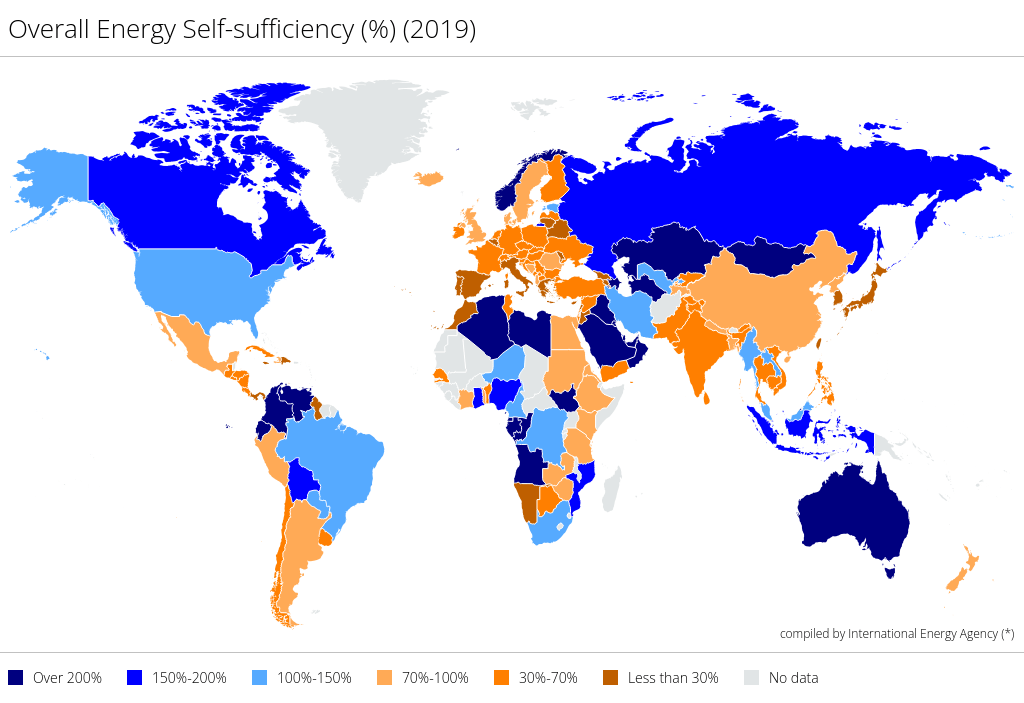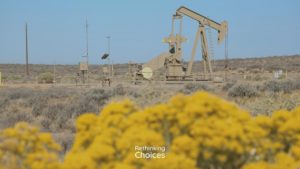We were at an investor conference last week. The participants were asked, “Hands up if you believe in net-zero?” Everybody put their hands up. Then they were asked, “Hands up if you believe net-zero is achievable?” Nobody except us had their hands up.
Net-zero cannot be achieved by investments alone. Investments ultimately are about more activities. More activities need more energy. At a time when renewable energy is still in short supply, having more activities means we will use more fossil fuels.
The investors appreciated this in their hearts. Even as we strive towards net-zero we are creating the incentives to use more fossil fuels and make the climate situation worse. That is why nobody else put their hands up.
We put our hands up because we believe in Transformational Ownership.
This idea is simple. We buy up all the fossil fuel producers to commit them to climate science-guided production. The companies continue to operate for profit helping with the energy transformation. As stewardship owners, we use all the profits to support people. This is the only way to reduce emissions and achieve net-zero.
We spoke about this at the conference. It is a radically bold idea and we need global support for it. That is what we spoke at the conference about wanting investors and businesses to pledge $1 trillion dollars to put into a single global Transformational Ownership Fund to buy up the fossil fuel producers. Investors and businesses pledging this become Transformational Owners and will be able to say, hand to heart, that they are paying for the planet to have a real seat at the table. We also need a billion people to demand the profits from the transformed producers go to local projects people nominate themselves. Doing this is giving people the dignity to choose what they want for themselves.
The reality is climate change is already hitting us hard. It is making it harder and harder to recover from accidents and disruptions we face. Last year, supply chain problems were accentuated by losing more containers at sea than any other year. This was because the storms were getting bigger. The recovery from covid was made more costly by the lack of wind which drove up prices for gas and coal. Each time we take a hit, climate change effects are making the recovery more difficult.
This year, the war in Ukraine is hitting our food production. Ukraine provides us with significant amounts of wheat. Climate change is making it harder for us to compensate. Each year the wheat crop in the US is inspected in April for its quality. This year, only 30% is considered as good. It is one of the lowest quality crops ever, and this is due to the lack of rain. Climate change is already here.
These impediments are not going to go away. They are going to get worse. Our wealth is so leveraged on a clement climate it does not take much disruption to bankrupt us. Think about your insurance, whether this is for your home, mortgage, or for business. Heavier rains are flooding out homes. When this happens insurance premia go up or worse still, insurance becomes unavailable. The disruptions impact our businesses as well. Businesses failing will cost jobs. All these things will happen together because they are all triggered by climate change. The only way to protect ourselves is to make sure climate change does not get worse. That means controlling fossil fuel production.
Last year we emitted 39 gigatonnes of carbon dioxide. If we reduce 1 gigatonne of the 39 gigatonnes of carbon dioxide each year for 39 years, we still have emitted almost twice the amount to keep below 1.5 degrees of warming. In energy terms, 80% of our energy still comes from fossil fuels. Reducing by 1 gigatonne of carbon dioxide is equivalent to cutting what Germany consumes as energy in a whole year, or one and a half times the renewable energy the whole of Europe consumed in 2020. When our investments are calling for more activities, and we are all eagerly striving for net-zero, our demand for energy will only increase. This can only be met by more fossil fuels. It is a vicious circle that can only be broken by limiting fossil fuel production.

But if we are to reduce fossil fuel production, we have to do this globally under stewardship. It will need to involve everyone working together. Transformational Ownership is a capital market mechanism to bring people, investors and businesses together to limit fossil fuel production, but governments will need to work together to ensure energy is distributed to all people across the world. That is what the COP conferences need to be about.
5.7 billion people live in countries that lack energy self-sufficiency. Of the other 2 billion who are fortunate to live in countries with self-sufficiency, half live in the US, Brazil, Nigeria, and Indonesia. Another 144 million live in Russia. If we are to get to net-zero, energy security is about global energy security.
Europe moving away from Russian oil and gas is simply taking energy from other countries which cannot afford to do so. It is purely virtue signalling if Europeans do not look after the 5.3 billion other people who do not have energy self-sufficiency.
What is morally needed here and for climate change is to reduce energy demand, not simply to hoard for ourselves what others need. The war is making us aware that energy is precious. We each have to answer for ourselves about the energy we use. Can we do without it so others can use it better? The climate will demand us to keep asking this question. We have to recognise it is in everybody’s best interest to be thrifty ourselves so that we can share all energy, fossil fuel and renewables.
The fact is fossil fuel production will have to reduce. The question is whether this comes about before bankruptcy or after. Doing this before through Transformational Ownership is not only fundamentally value-creating, but it brings all parties together with the planet and people having a genuine voice; doing it as a result of bankruptcy will be disastrous. There will be weeping and gnashing of teeth.
If you believe in six impossible things before breakfast, then we would like you to believe in one more — we can fix climate change. Email us to connect with us. Invite us to talk with your circle so you can quiz us on the details. Help us to connect with investor and business associations and community networks across the world, so we can make the trillion and the billion happen.
Time is short. But there is always hope. Let’s make the impossible happen so that the planet has a real voice and governments have something real to talk about at COP 27.



